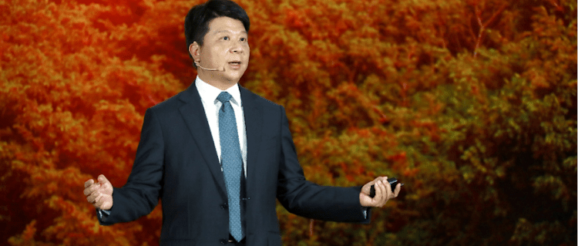Huawei Names Connectivity, Computing, and Smart Devices as the Next Innovation Frontier

Amid the pandemic, Chinese smartphone maker Huawei held its 17th annual Global Analyst Summit in Shenzhen.
The meet was attended by more than 2000 key opinion leaders, analysts, and media members, both onsite and online.
The event was mainly staged to discuss how the industry can work together during this challenging time for win-win outcomes.
The man of the hour was Huawei’s Rotating Chairman Guo Ping, who delved into a keynote speech titled Huawei: A Year and Beyond.
The speech covered the corporation’s developments, experiences, and missteps from the past one year. This also marked exactly one year after the company was entered in the U.S.’s Entity List that bars it from doing business with American companies.
“Over the past year, many technologies became unavailable to us. Despite this, Huawei struggled to survive and is striving to move forward,” noted Guo Ping.
The summit further reiterated Huawei’s achievements. In three decades, the corporation has deployed more than 1500 networks in more than 170 countries and regions. The infrastructure is serving more than 3 billion across the globe.
The chairman added that U.S. sanctions will harm not only Huawei but also the experiences of customers and consumers that use Huawei products and services.
The other day, the U.S. government enforced another legislation that will affect Huawei’s chip business. The rule stipulates that Huawei must not use American software and hardware in certain semiconductor processes.
Therefore, foundries in the U.S. and abroad will be affected. Some of the foundries do business with Huawei.
Huawei has since called these regulations as a bullying tactic by the U.S. in its alleged plan to crush foreign companies.
Nevertheless, Huawei says that it is planning to invest heavily in connectivity, computing, and smart devices.
“We will work with customers, partners, standards organizations, and all other industry players in domains like supply chain, standards, and talent cultivation, to encourage open collaboration, promote inclusive industry development, and explore the future together,” states Huawei.
“Today, the world is an integrated collaborative system. The trend of globalization shouldn’t and will not likely be reversed. Fragmented standards and supply chains benefit no one, and further fragmentation will have a severe impact on the entire industry. The industry as a whole should work together to strengthen IPR protection, safeguard fair competition, protect unified global standards, and promote a collaborative global supply chain,” added Guo Ping.
